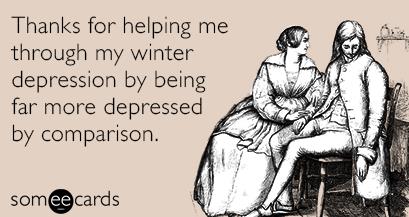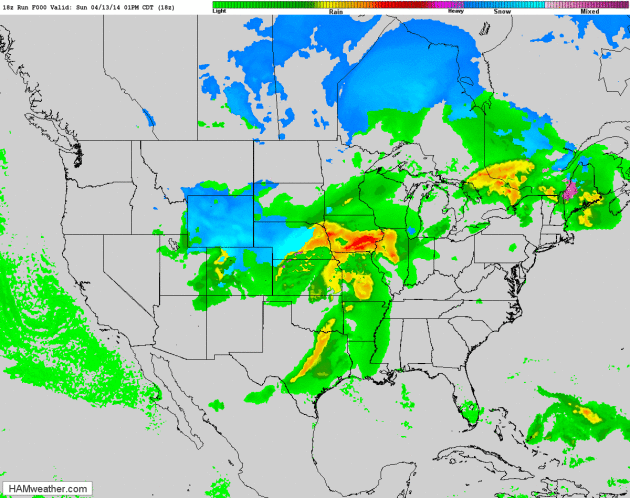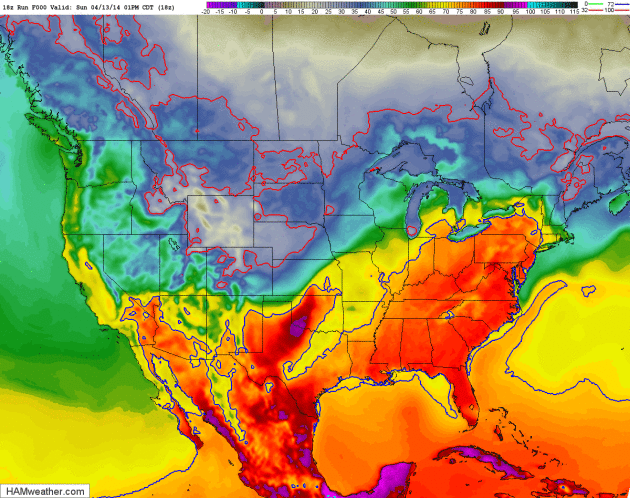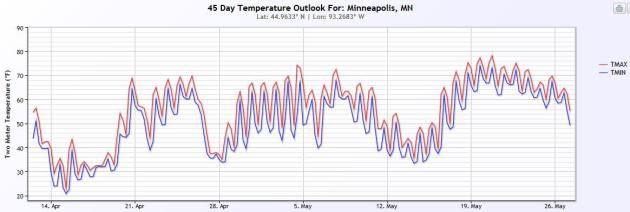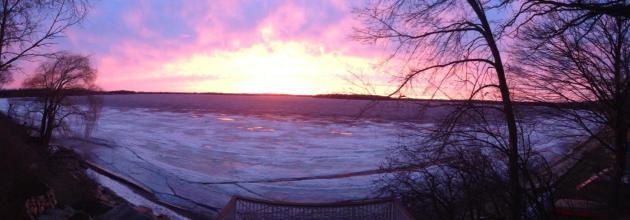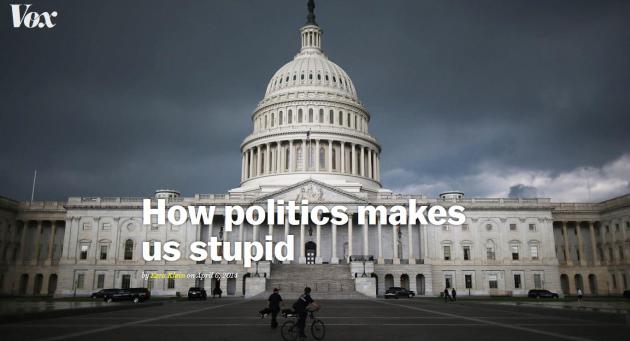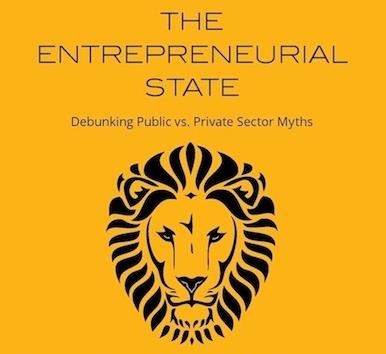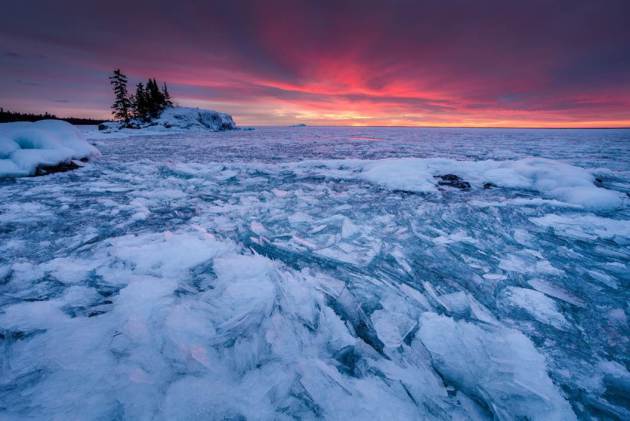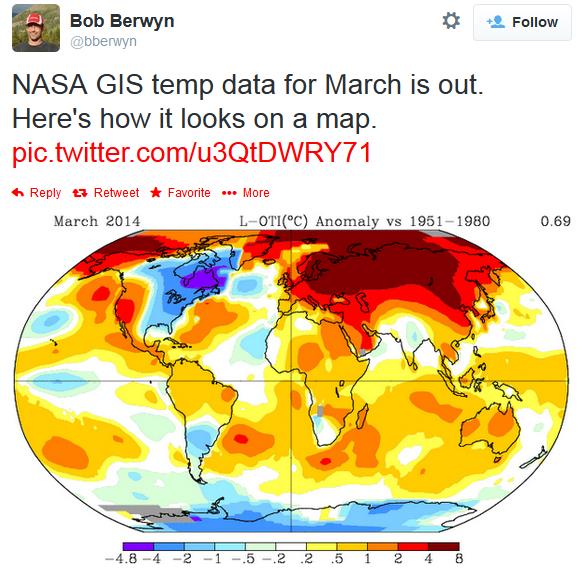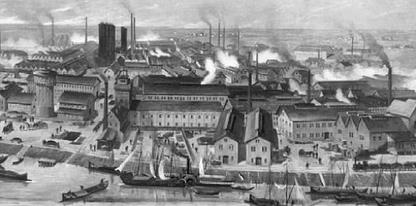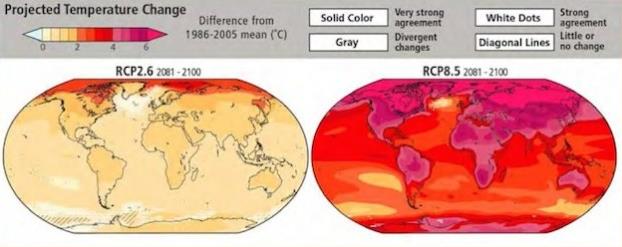A Fine Whine
Amazingly,
meteorologists are people too. Well, on a good day. We get just as
annoyed with lousy weather as everyone else, even though it offers some
(perverse) level of job security. Should we be clinical and unemotional?
"Just the facts ma'am." Or do we hold up a mirror and reflect some of
the weather-related joy, dread & angst we witness all around us? I
still struggle with this.
Ron Reimann of Arden Hills has had
enough "Debbie Downer" weather updates. "....I’m convinced the depth of
our 4 seasons is part of what makes Minnesotans so vibrant and healthy.
Each of our 4 seasons demands changes in our lives and keeps us from
getting into as much of a rut" he wrote. "Can’t you celebrate that a
little more and help make that our mental model here, instead of
fostering this “poor us” mentality?....."
Ron has a point.
Reacting to extreme and violent weather (that often tries to murder us)
has fostered resilience & innovation - it's FORCED us to adapt and
improve. I'm usually a glass-half-full guy, but this winter tested my
patience too, I admit.
We won't see much of spring into Friday; a
chilly relapse gives way to 50s next weekend. Then again, no slush, no
early mosquito bites, no blaring severe storm sirens or widespready
flood warnings. It could be worse.
I'm trying, Ron. I really am.
April In Name Only.
It will look and feel more like mid-March, at least into Thursday -
temperatures running 10-15F below average. A rain-snow mix is possible
Wednesday, even a few inches of slush north of the metro area. April
returns by the weekend, ECMWF data hinting at 70F by Tuesday of next
week. Graphic: Weatherspark.
Future Radar.
NOAA's NAM model shows heavy showers and T-storms pushing into the
eastern half of the USA today; the next system pushing a smear of rain
and wet snow across the Upper Midwest by Wednesday. Map: HAMweather.
Relapse.
After basking in the 70s and 80s Sunday temperatures drop off
dramatically this week out east as jet stream winds buckle, treating the
eastern half of the nation to a rerun of March. The solid red line
marks the 32F isotherm, the solid blue line the 72F isotherm. Map: NOAA
(NAM) and HAMweather.
45 Day Wish-Cast.
My confidence level is low in terms of overall skill levels, but NOAA's
CFS (Climate Forecast System) model shows the current "correction"; a
cold snap much of this week, followed by a return of more springlike
conditions next week; highs near 70F much of late April into early May.
Graph: NOAA and HAMweather.
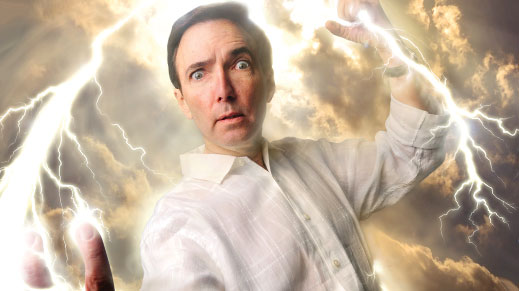 Ask Paul
Ask Paul. Weather-related questions and comments:
Paul and Todd,
First, I am weather nut and outdoor enthusiast, and so I love your passion for weather and all you do.
But,
I find myself developing some sort of complex about living in Minnesota
with your column and Tribune summary paragraph constantly referring to
winter weather as something to fly to Florida to get away from.
Read
your last 10 tribune summaries, how many are like some therapy session
trying to console us like we are living here against our will!
I’m
convinced the depth of our 4 seasons is part of what makes Minnesotans
so vibrant and healthy. Each of our 4 seasons demands changes in our
lives and keeps us from getting into as much of a rut.
Can’t you
celebrate that a little more and help make that our mental model here,
instead of fostering this “poor us” mentality. You can do it!
This
is written with a smile and positive energy and with a constructive
spirit (and yes I do have a full spectrum lamp on next to me!)
Ron Reimann
Arden Hills, MN
Ron
- I hear you, and I'm happy to report that I've upped my dosage of
antidepressants, so I'm ready for anything now! Harsh winters, the will
to not only survive but thrive, helped to make Minnesota what it is
today, no question. The brutal cold, scorching summer heat and waves of
extreme weather helped to power the innovation we now tend to take for
granted. It also created "snowbirds"; weather-wimps who flee south for a
few months every winter. I once mocked them. After this winter I'm not
so sure anymore. But the gist of your note seems appropriate. There is
no such thing as bad weather, only inappropriate clothing choices,
right? I will try to atone (but I have it on good authority
meteorologist Todd Nelson is still going to gripe when Mother Nature
loses her mind).
How Politics Makes Us Stupid. Ezra Klein has an interesting read at
vox.com; here's an excerpt: "
There’s
a simple theory underlying much of American politics. It sits hopefully
at the base of almost every speech, every op-ed, every article, and
every panel discussion. It courses through the Constitution and is a
constant in President Obama’s most stirring addresses. It’s what we
might call the More Information Hypothesis: the belief that many of our
most bitter political battles are mere misunderstandings. The cause of
these misunderstandings? Too little information — be it about climate
change, or taxes, or Iraq, or the budget deficit. If only the citizenry
were more informed, the thinking goes, then there wouldn’t be all this
fighting....But the More Information Hypothesis isn’t
just wrong. It’s backwards. Cutting-edge research shows that the more
information partisans get, the deeper their disagreements become..."
What To Do Now That The Heartbleed Bug Exposed The Internet.
Stop using the 'net? Good luck with that. But there are a few steps you
can take to lower the risk. Here's an excerpt of story focused on "good
internet hygiene" courtesy of
NPR: "...
While individual users can't patch the holes, keep in mind some general Internet hygiene that we should be doing anyway.
- Change your password every few months.
Because so many of our transactions are conducted online, this is a
good practice to have no matter what. But to be extra safe, use , which
typically means you need to know a piece of information — like a
password — and have a piece of information, like a freshly generated
pass code that shows up only on your personal smartphone, before getting
into certain sites.
- Be a little leery of public Wi-Fi networks.
If you are hopping on the Wi-Fi at Starbucks and other public places,
limit your Internet behavior to the things you wouldn't mind people
being able to find out and transactions that aren't especially
sensitive..."
The Most Dangerous Words In Tech.
Government investments (often in military technology) trickle down and
become the foundation for "innovative new breakthroughs" in Silicon
Valley? Here's a clip of another story worthy of your time at
The New York Times: "
...Speaking at the Institute for New Economic Thinking conference
in Toronto this week, Mariana Mazzucato, a professor at the University
of Sussex, described the most notable technology innovations as coming
from the government, not the private sector. “What made the iPhone
‘smart’ — GPS, touch screens, Siri, the Internet — was started by the
government,” said Ms. Mazzucato. “The National Institutes of Health is
responsible for creating the most revolutionary drugs.” Her recent book,
The Entrepreneurial State , is about contributions the government has made to innovations Silicon Valley claims as its own..."
* "Fire and Ice" photo above courtesy of
Steve Burns.
Climate Stories...
March Temperature Anomalies.
March was a reflection of the entire winter; colder than average for
eastern Canada and the USA, but (much) warmer than average across the
rest of the planet, temperatures as much as 6-10F warmer than average
fro Europe into much of Asia and Siberia.
Odds That Global Warming Is Due To Natural Factors: Slim To Nil.
The McGill Reporter has the research (on the research); here's an excerpt: "...
Statistical analysis rules out natural-warming hypothesis with more than 99 per cent certainty.
An analysis of temperature data since 1500 all but rules out the
possibility that global warming in the industrial era is just a natural
fluctuation in the earth’s climate, according to a new study by McGill
physics professor Shaun Lovejoy. The study, published online on April 6,
in the journal Climate Dynamics, represents a new approach to the
question of whether global warming in the industrial era has been caused
largely by man-made emissions from the burning of fossil fuels..."
U.N. Climate Panel Warns Speedier Action Needed To Avoid Disaster. Here's an excerpt of a
Justin Gillis article on the latest IPCC climate summary in the New York Times: "...
It remains technically possible to keep planetary warming to a tolerable level, the Intergovernmental Panel on Climate Change found, according to a report
unveiled here. But even in parts of the world like Europe that have
tried hardest, governments are still a long way from taking the steps
that are sufficient to do the job, the experts found. “We cannot afford
to lose another decade,” said Ottmar Edenhofer, a German economist and
co-chairman of the committee that wrote the report. “If we lose another
decade, it becomes extremely costly to achieve climate stabilization...”
* The Fifth Assessment Report (AR5) of the IPCC is
here.
Climate Panel Stunner: Avoiding Climate Catastrophe Is Super Cheap - But Only If We Act Now. ThinkProgress puts the latest IPCC report (AR5) into perspective; here's a clip: "...
Now
you might think it would be a no-brainer that humanity would be willing
to pay a very high cost to avoid such catastrophes and achieve the low
emission “2°C” (3.6°F) pathway in the left figure above (RCP2.6 — which
is a total greenhouse gas level in 2100 equivalent to roughly 450 parts
per million of CO2). But the third report finds that the “cost” of doing
so is to reduce the median annual growth of consumption over this
century by a mere 0.06%. You read that right, the annual growth loss to
preserve a livable climate is 0.06% — and that’s “relative to annualized
consumption growth in the baseline that is between 1.6% and 3% per
year.” So we’re talking annual growth of, say 2.24% rather than 2.30% to
save billions and billions of people from needless suffering for
decades if not centuries. As always, every word of the report was signed
off on by every major government in the world..."
Graphic credit above: "
Humanity’s
choice (via IPCC): Aggressive climate action ASAP (left figure)
minimizes future warming. Continued inaction (right figure) results in
catastrophic levels of warming, 9°F over much of U.S. The latest IPCC
report finds the annual cost of avoiding that catastrophe is a mere
0.06% of annual growth."
